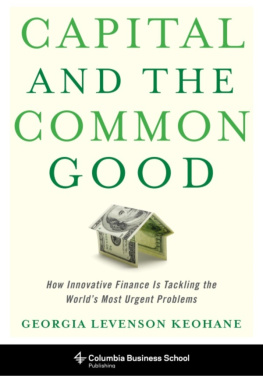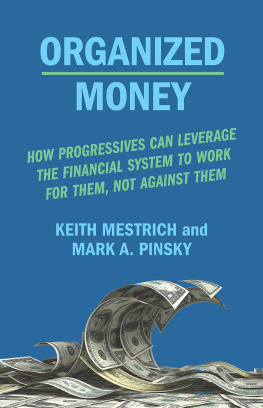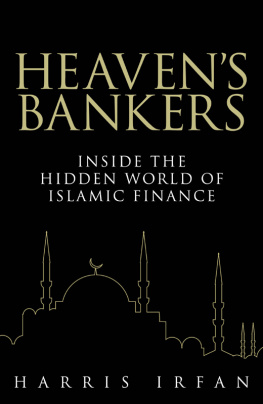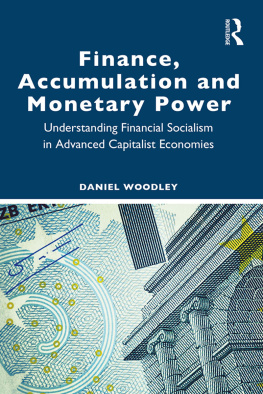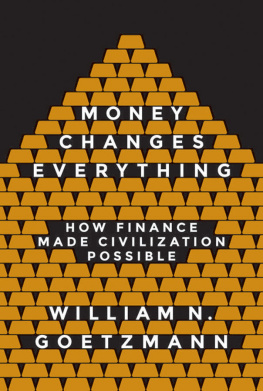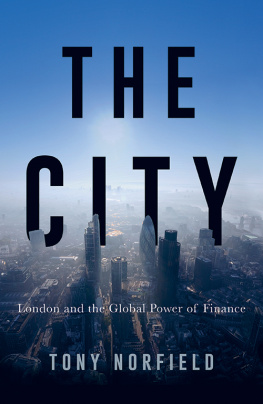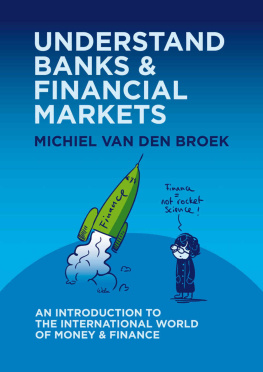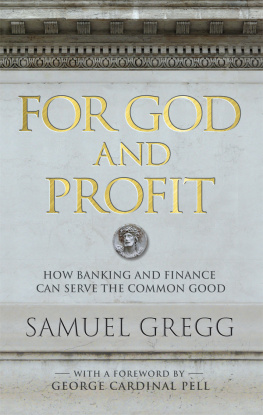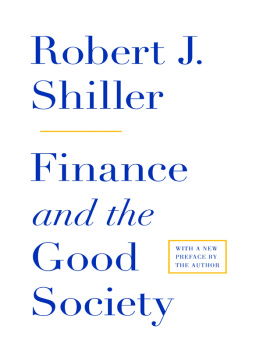Praise for Can Finance Save the World?
Agree or disagree, Bertrand Badr has written a hugely important book on the future of finance. He provides a compelling vision for ethical global finance that makes current political debates seem petty and thoughtless.
Lawrence H. Summers, Charles W. Eliot University Professor, Harvard University
Bertrand Badr knows as well as anyone what gave rise to the disenchantment with the world of finance. His aim in this important and provocative book is to point to a new world in which finance is no longer a threat but becomes a handmaiden to order, stability, confidence, growth, and greater equality.
Ezra Suleiman, Professor of Politics and IBM Professor of International Studies, Princeton University
Bertrand has definitely witnessed the financial crisis from the inside and has drawn important lessons. More importantly, this book shows that things can actually be done, walking the talk rather than just talking the talk.
Ricardo Ernst, PhD, Baratta Chair in Global Business and Professor of Operations and Global Logistics, McDonough School of Business, Georgetown University
A wake-up call. An experts valuable overview of the need to support the nascent revolution in finance to improve lives.
Sir Ronald Cohen, Chair, Global Social Impact Investment Steering Group, and cofounder of Apax Partners
This book is a must-read for anyone interested in understanding why finance has become such a powerful force for our times. Can finance save the world? Maybe, but it could also cripple it. Badrs insights reflect the rare combination of a keen intellect and a wealth of hands-on experience in the world of international finance.
Masood Ahmed, President, Center for Global Development
This book is a powerful call to action for global leaders to reinvent the way that the public, private, and social sectors collaborate and describes the important and unexpected role that finance can play in uniting stakeholders across political and socioeconomic boundaries.
Dominic Barton, Global Managing Partner, McKinsey & Company
Everyone says we need more public investment. Everyone says the public and private sectors must work together. Nobody has told us howuntil Badr spelled it out practically and providentially in this book.
Adam S. Posen, President, Peterson Institute for International Economics
Colorful, confronting, and compelling! Bertrand Badr presents the case for reshaping the international financial architecture and mobilizing global financial flows as drivers of inclusive growth. This book is a call to action for all of usas we continue to grapple with the legacies of the global financial crisis.
Angel Gurra, Secretary-General, Organisation for Economic Co-operation and Development
Bertrand Badr makes a convincing argument for how financial institutionsand particularly multilateral development bankscan help humanity conquer some of its greatest challenges, from climate change to the quest for building more equitable societies. His book is a valuable contribution to the debate about development finance.
Luis Alberto Moreno, President, Inter-American Development Bank
Bertrand Badrs creative and insightful book on international finance paints a holistic picture of the practical and ethical dimensions of this very important social tool.
John D. Negroponte, former US Permanent Representative to the United Nations and former Deputy Secretary of State
Building on the seminal idea that finance, like any human activity, is here to serve the common good, Bertrand Badr outlines in this easy-to-read book a number of avenues that humankind can and should explore and embrace to address the challenges it faces today, using finance as a tool, not an end. An inspiring and practical invitation to choose the right path at the crossroad the world finds itself at.
Hubert Joly, Chairman and CEO, Best Buy
It has been a long-held belief of mine that leveraging the private sector much more efficiently as well as being innovative in how we use capital are two of the essential keys to unlocking development. Bertrand Badr carries these as central themes throughout his well-argued book. What is even more impressive is Bertrands bold move to implement what has long been discussed in theory into real life and concrete action. This is why I am really proud to support him and Blue like an Orange.
Olivier Goudet, CEO, JAB Group, and Chairman, Anheuser-Busch InBev
Bertrand Badr offers a holistic view of finance. Like technology, it is neither good nor bad in itself. But an intelligent partnership between private financial institutions, international organizations, governments, and the philanthropic sector can produce fabulous results. To help us understand how these partnerships can be crafted and the crucial role domesticated financial institutions can play, he draws on his deep experience in both the public and the private sectors. A must-read for the development finance community.
Kemal Dervis, Director of Global Economy and Development, Brookings Institution, and former head of the United Nations Development Programme
In these times of uncertainty and increasing nationalism, Badr makes a powerful case for the inherently global nature of finance and its capacity to be used as a tool for good.
Agustn Guillermo Carstens Carstens, Governor, Banco de Mxico
Drawing on deep expertise, wide-ranging practical experience, and the vantage point of a thoughtful insider, Bertrand Badr provides important insights on how society canand shouldregain control of a bipolar finance system to deliver better and more sustainable outcomes for more people around the world.
Mohamed El-Erian, Chief Economic Advisor, Allianz; former CEO, PIMCO; and author of The Only Game in Town
Bertrand Badr and I worked on promoting the G20 infrastructure agenda during the Australian presidency. The ideas we pushed are the ones that are at the heart of Can Finance Save the World? Ideas are essential, but this book is about trying and doing. A true call for action.
Honorable Joe Hockey, Australian Ambassador to the United States, former Treasurer of Australia, and former Chair, G20
A blueprint for forceful, collective action. Against a rising tide of economic nationalism, Badr lays the course to address an unprecedented range of global threatsclimate change, pandemics, inadequate access to infrastructure and water, and refugee crises. With his new venture, Blue like an Orange, Badr is also practicing what he preaches, reimagining finance as an equalizing force for the vulnerable among us.
Antonio Weiss, Senior Fellow, Harvard Kennedy School
This book is refreshingly different. Written by someone with a deep understanding of both the flaws and the possibilities of the financial system, it presents a level-headed analysis of what went wrong. However, it goes much further and offers a constructive view of what can be achieved if we move beyond the postmortem and remember what tremendous potential finance can bring to economic and social development. Indeed, it argues for the right kind of innovation in our financial system as an indispensable ingredient to solve many of todays global problems and create a more equitable world.
Klaus Schwab, Executive Chairman, World Economic Forum
Postcrisis financial reform efforts have focused on how to make the global system safer so that it cant happen again. Bertrand Badr instead addresses the forward-looking challenge of making finance effectively serve broader interests of social and environmental progress, in addition to promoting growth.
Next page

